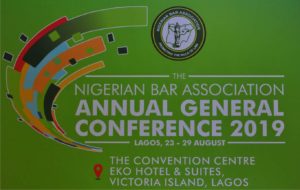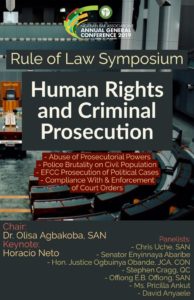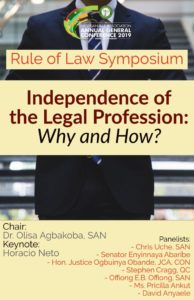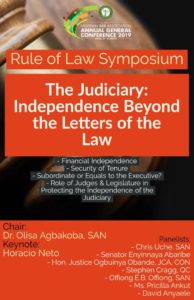


Declaratory Judgement and the Intricacies of Execution: Alhaja Nusiratu Shekoni & ORS V G.A Lawal & ORS; A Case Study – Ogunsan Emmanuel
The High Court of Lagos State recently delivered a ruling on the non-executory nature of a declaratory judgement. The decision of the High Court per Hon. Justice B.A Oke-Lawal explores the declaratory and executory nature of the judgment of the Court of Appeal in the case of Alhaja Nusiratu Shekoni & Ors V G.A Lawal & Ors, Suit No: CA/L/967/2012 (delivered on the 20th day of March, 2014)which in one breath declares the appellant as the owners of the land in dispute and went further by way of injunction to restrain permanently any act of the Respondent which may hamper the enjoyment of ownership rights of the Appellant. The court in reaching a decision considered the judgment of the Court of Appeal as merely declaratory that cannot be enforced.

What played out in this case is therefore similar to the scenario that played out in the case of Okoya v Santilli (1990) 2 NWLR (Pt. 131) 172; (1990) 1 All NLR 250. In Okoya’s case, the Supreme Court wasfaced with the responsibility of determining whether or not the judgment of my Lord Odunowo J (as he then was) was a declaratory judgment.
In reaching its decision, the Supreme Court stated that the first 3 orders of the court were declaratory because they each merely proclaim or declare the primary rights ante litem via-a-vis, making a declaration as to (1) authentic memorandum and Article of Association of the 3rd Plaintiff Company-see Order 1; (2) the share capital of the same company- see order 2, and (3) the shareholdings of the parties to the said company – see order 3. The court noted that none of them pronounced any sanction directed against any of the Defendants in the event of defiance of the orders by the Defendant.
The court stated that until subsequent proceedings have been taken on a declaratory judgment following its violation and the right declared in the judgment receives enforcement or is given legal sanction for its violation, it cannot be enforced because it merely proclaims the existence of a legal relationship and it does not contain any order which may be enforced against the Defendant.
The court further stated that the Order of Perpetual Injunction restraining the Defendants from acting in a particular way is an executory judgment and can thus be enforced against whosoever the decision was made against.
In relation to the above case, though the declaration as to the ownership right of the Appellant cannot be enforced being a declaratory judgment, the Order of Perpetual Injunction can be executed being an executory judgment.
It is our contention that two possibilities can thus be explored:
- Relying on the approach of the Supreme Court in the Okoya case, one may decide to proceed to enforce the Order of Perpetual Injunction made against the Respondent since it is an executory judgment as declared in Okoya v Santilli. It should be noted that this option will be desirable because from the decision in the case of Goldmark Nigeria Ltd & Ors v. Ibafon Company Ltd & Ors (2012) LPELR-SC. 421/2001; (2012) 49 NSCQR pg. 1763 @ 1820the Supreme Court has stated that the essence of granting a perpetual injunction on a final determination of the rights of the parties is to prevent permanently the infringement of those rights and to obviate the necessity of bringing multiplicity of suits in respect of every repeated infringement; per O.O Adekeye, JSC.
If a Perpetual Injunction is to prevent permanently the infringement of a declared right, it goes without gainsaying that the Appellant is entitled to enforce the order against any trespasser who attempts to infringe on his declared right.
- On the other hand, if a person is so keen on gaining possession, he can go by way of Order 57 of the High Court of Lagos State (Civil Procedure) Rule 2019 insofar as the persons in occupation of the land are not:
- A tenant; or
- A tenant holding over after termination of his tenancy; or
- A licensee of the owner or person entitled to possession; or
- A person who had the consent of the predecessor in title of the person who is entitled to possession.
Please note that this article is only meant to serve as a guide and not to be taken as an authority on the subject matter.
Wiseview Legal Consultancy
g.ajala@wiseviewlegal.com m.ogunsan@wiseviewlegal.com


Newswire, we present the world of law and the issues that engage them. This edition is yet again, ‘Mind-blowing’. Go get your copy(ies) Now!







